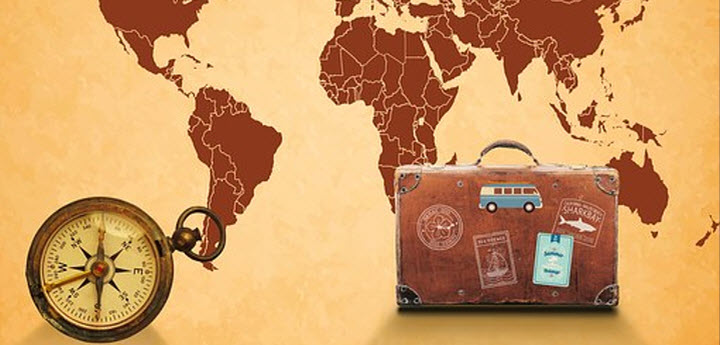
I am a man from the Far East living in The West. When you are living on land where the majority of people have a different cultural background with differing points of reference you come across these differences on a daily basis. They are mostly left unobserved. But for a man like myself, having been born and grown up in one culture and having lived most of my adult life in an entirely different one, the cultures of east and west do walk on the same streets yet experience a different view. Here is one example:
King James Version of The Old Testament starts from the following statements in Genesis:
1-1: In the beginning God created the heaven and the earth. 1-4: And God saw the light, that it was good: and God divided the light from the darkness.
In the East, we do not have “Bible” equivalent. Instead, Hinduism, Taoism, Shinto, Buddhism and others co-exist in the group. In Taoism, Zhangzi’s (Chuang-Tzu: 369 to 286 BCE) expressed an interesting point in his “The Book of Chuang-Tzu”:
Ch.17: Great knowledge sees all in one. Small knowledge breaks down into the many.
Regarding human words and writings, approaches are different as well. The Gospel of John from the King James Version of The New Testament starts in the following way:
1-1: In the beginning was the Word, and the Word was with God, and the Word was God.
“The Book of Chuang-Tzu” shows the reason why words and writings are not perfect. (English translation: James Legge)
Ch.13 What the world thinks the most valuable exhibition of the Dao(Tao) is to be found in books. But books are only a collection of words. Words have what is valuable in them – what is valuable in words is the ideas they convey. But those ideas are a sequence of something else – and what that something else is cannot be conveyed by words – and so it is that ‘the wise do not speak and those who do speak are not wise.’
Ch.13 In making a wheel, if I proceed gently, that is pleasant enough, but the workmanship is not strong; if I proceed violently, that is toilsome and the joinings do not fit. – But I cannot tell (how to do this) by word of mouth; there is a knack in it. I cannot teach the knack to my son, nor can my son learn it from me.
Now what you see here are two extreme cases of view. One is logical and the other is intuitive. My interpretation is that Chung Tzu is referring to “great knowledge” as Tao, while “small knowledge” as practical knowledge (science for example). The same could be applied on the wheel making too. When you cannot explain the delicate technique of wheel making to people, your presence is required. However, you will be able to explain non-delicate techniques by word of mouth, or even by writing a production manual.
My own logical interpretation is: when people talk about intuitive understandings (like Tao), it is used as a directional guidance. However, once that is done, the rest is in logical and practical follow-ups. When you intend to solve problems by intuition only or logic only, our world does not work smoothly. I have seen too many people trying to live this life with one extreme or the other. My advice? Walk the street on both sides, it is the same street yet you will see things from a different reference point.
